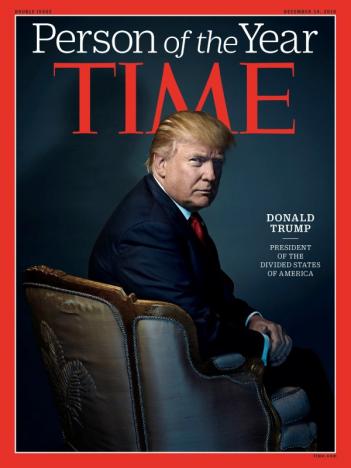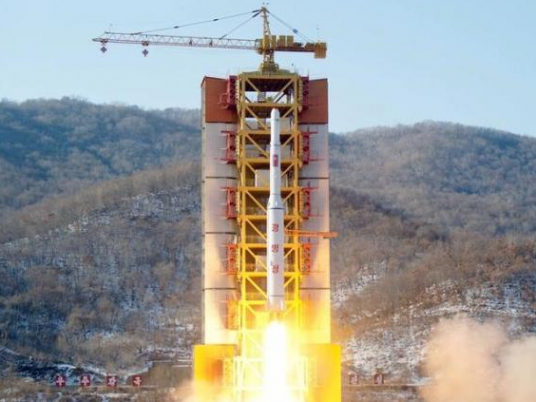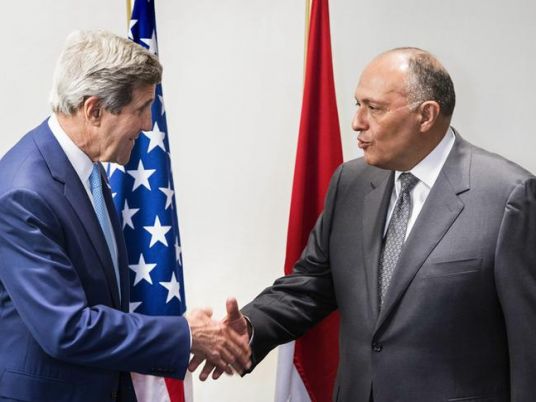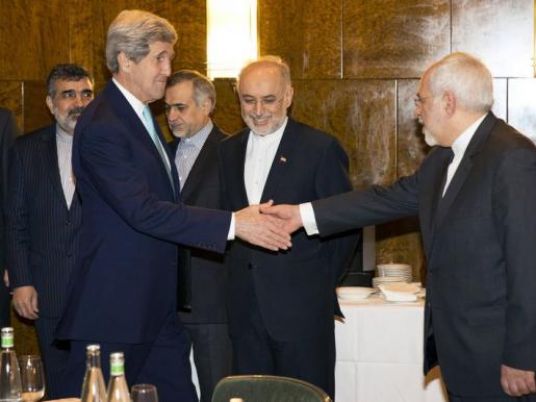United Nations—Egypt and the United States were Tuesday trying to work out a compromise at the United Nations to start talks on a Middle East nuclear weapons-free zone, diplomats said.
US Secretary of State Hillary Clinton had Monday told the conference on the nuclear Non-Proliferation Treaty (NPT) being held here that the United States is “prepared to support practical measures” towards “the objective of a Middle East free of weapons of mass destruction.”
Egyptian ambassador Hisham Badr on Tuesday told the some 150 nations at the three-week-long NPT meeting that the review conference should support taking “concrete and practical steps” for “the establishment of a Middle Eastern zone free of nuclear weapons, as well as other weapons of mass destruction.”
Diplomats said the two sides are working behind the scenes to reconcile a hardline Egyptian position that a conference should be held to begin negotiating on such a zone with the US and Israeli stance that creating a zone depends on first finding peace in the Middle East.
“We’re not there yet but we are talking,” an Arab diplomat told AFP.
The deadlock over this issue threatens to block progress at the NPT meeting, which seeks progress on disarmament and non-proliferation.
US State Department spokesman PJ Crowley told AFP that the “practical measures” mentioned by Clinton were “helping create conditions that allow us to advance this concept (of a nuclear weapons-free zone). Peace negotiations would be one of them.”
But Arab diplomats insist that creating such a zone should not be held hostage to the lack of peace in the Middle East.
“A conference should look at whatever steps are necessary to move forward,” said one diplomat.
“But we expect it would be one which would launch negotiations on a zone and not just be a talk shop,” he said.
Egypt insists that Israel join the NPT.
It is spearheading the nuclear-zone issue for the non-aligned movement. Badr, who represents Egypt at the UN in Geneva, was speaking Tuesday for the New Agenda Coalition of Brazil, Ireland, Mexico, New Zealand, South Africa, Sweden and Egypt.
Israel is believed to have some 200 atom bombs but does not confirm this. It says there must be peace in the Middle East before setting up a weapons-free zone.
The NPT is built on a bargain that nuclear weapons states pledge to move towards disarmament while other states forswear the bomb in return for access to peaceful nuclear energy.
NPT review conferences have been held every five years since the treaty was signed in 1970.
The 1995 review conference called for a Middle East free of weapons of mass destruction and extended the NPT indefinitely.
The 2000 conference outlined steps to disarmament by nuclear-weapons states.
But the NPT process stalled in 2005, when bickering over a Middle East weapons-free zone and over the Iranian nuclear crisis destroyed any chance of new agreements or fixes to the Non-Proliferation Treaty.
US President Barack Obama has made moving forward on non-proliferation a top priority, and is seeking an accommodation with Egypt in order to avoid a stalemate at this year’s NPT conference.
Diplomats said the two sides were considering the idea of appointing a special envoy to look into setting up a conference.
An Arab diplomat said, however, that “a conference would have to be endorsed before an envoy would be appointed.”
He said it would not be acceptable to paper over the dispute by having an envoy appointed, with no reasonable hope of having a conference.
“We’re not three-year olds. We know what’s going on,” the diplomat said.
Russian Deputy Foreign Minister Sergey Ryabdkov told the NPT conference Tuesday his nation shares “the concerns of many states related to the implementation” of the 1995 resolution on setting up a zone free of weapons of mass destruction in the Middle East.




